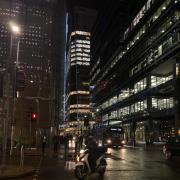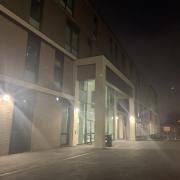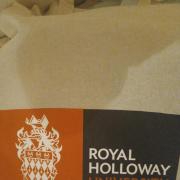
The Government advice to avoid COVID-19 is clear: Stay at Home and Stay Safe. So how best can the estimated 5,000 rough sleepers across the country be kept safe, who is taking responsibility for these people - many of whom are particularly vulnerable to the coronavirus as they are three times more likely to have severe respiratory problems - and how can it be justifiable to send them back on to the street once this unprecedented crisis is over? With regular homeless volunteers and charity workers forced into self-isolation and day centres, night shelters and street encampments having to close to stop the spread of the virus what is the Government doing to help those in most need in society during this public health emergency?
At the end of last week, Communities Secretary Robert Jenrick announced £3.2m of initial emergency funding to help local authorities provide accommodation and services to rough sleepers who need to self-isolate. Councils were then given 48 hours to find accommodation to house all the rough sleepers in England. Opposition parties have argued this task was too great for cash strapped Local Authorities, given cuts to homelessness spending due to austerity measures in recent years. Labour's shadow housing secretary, John Healey, admitted the decision was the "right move" but maintained that the sum “is simply not enough”. Since 2010, local council spend on homelessness services has been cut by £1bn. Many would argue that this action taken by the government is too little and too slow, and the urgency to find accommodation heaps even more pressure onto already strained councils.
While the Government has insisted that local authorities should have housed all rough sleepers in appropriate accommodation by the end of last weekend, questions remain on how far this was achievable in such a short time scale given the shortages of suitable housing options. In London there is capacity of up to 160,000 hotel rooms with few, if any, tourists still in the Capital but earlier this month only 300 beds had been secured at the Intercontinental Hotels Group at a discounted rate. The homeless charity Crisis has raised concerns and is calling on the Government to ask for empty accommodation, such as hotels and office blocks, to be made available to councils.
Rough sleeping is also just the tip of the iceberg when it comes to homelessness. Crisis has also insisted that no amount of money could effectively solve the larger issues at hand such as the ‘hidden homeless’, those without a permanent home who bed down on sofas and floors and are not classified as rough sleepers. The charity has argued that new legislation would also be also required to address this issue and is calling for: restrictions on housing benefit to be lifted, allowing councils to re-house migrants whose immigration status means they unable to access public funds; funding to pay for the up-front costs of accommodation; and a package of support so that after this period subsides the outcome is not that people return to the streets.
It has often been said that the measure of a nation’s greatness is how it treats its weakest members in society. The Government’s response in this crisis has been determined by an urgent need to limit the spread of COVID-19 in communities. Once self-isolation has ended and the crisis abated, the real test for the Government and the nation is whether rough sleepers return to the streets or longer term solutions can be found to keep them safe with a roof over their heads permanently.
By Alex Buchanan, Wilson’s School



























